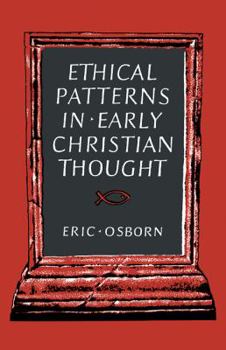Ethical Patterns in Early Christian Thought
Select Format
Select Condition 
Book Overview
In so-called Christian countries an increasing number of people openly reject Christian morality. It is a commonplace that they do this for values that can be shown to be Christian. How did this state of affairs come about? An examination of the beginning of Christian ethical thought shows that, within great personal variety, certain patterns or concepts remain constant. Righteousness, discipleship, faith and love are traced in this book from the New Testament through to Augustine. There is a necessary tension between high ideals and practical performance, or between perfection and contingency. When this tension is lost, Christian ethics can easily go wrong. The amoral perfectionism of second-century Gnostics is remarkably similar to the mysticism of communal movements; the opposite threat of legalism has always been present in conservative forms of Christianity. Dr Osborn is concerned to explain rather than to defend, to look at the way conclusions are reached, and to show the rich diversity of early Christian thought. Successive chapters deal with the New Testament, Clement of Alexandria, Basil the Great, John Chrysostom and Augustine.
Format:Paperback
Language:English
ISBN:0521092914
ISBN13:9780521092913
Release Date:January 2009
Publisher:Cambridge University Press
Length:268 Pages
Weight:0.76 lbs.
Dimensions:0.6" x 5.5" x 8.5"
Customer Reviews
0 rating





